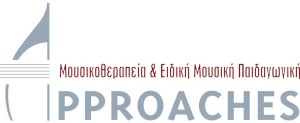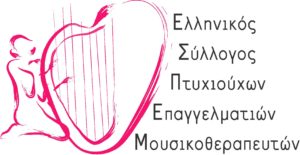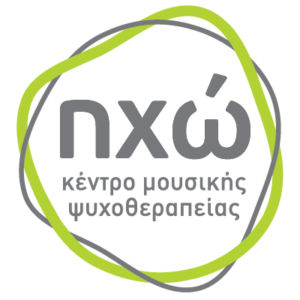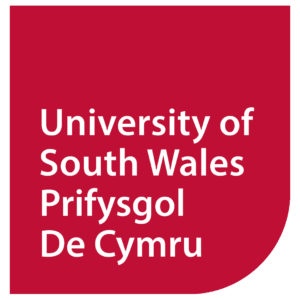Policies
Section Policies
|
|
Peer Review Process
All article and report submissions are peer-reviewed anonymously. Articles are first reviewed internally by the respective acting editor (Editor-in-Chief or Associate Editor). If the article fulfills the submission requirements, then an anonymised version is sent to two external reviewers. The peer-review process is overseen by the acting editor, and if necessary (e.g. in case of dispute between reviewers) the acting editor consults a member of the advisory editorial board.
The acting editor invites two reviewers who are experts in the subject area of the article. Reviewers are required to evaluate the article normally within 30-40 days. As soon as they provide their feedback, the acting editor produces a report enclosing the reviewers’ comments and outlining the next steps for the authors.
If reviewers require minor revisions, then the remaining review process carries on only in collaboration with the acting editor who ensures that all necessary amendments are addressed in the revised submission of the article. If major revisions are required, then the revised submission has to go through a second cycle of anonymous review.
Once a manuscript is accepted for publication, it is proof-read by Approaches’ language consultants and is copy-edited. A final proof copy is sent to the authors giving the opportunity for a final check prior to its publication. Authors are expected to return their final proof comments within 10 days.
All other submission (non-article or report) genres are reviewed by the Editor-in-Chief, an Associate Editor or an advisory editorial board member only.
The review process aims to ensure the high quality of publications appearing in Approaches. Review comments are meant to be constructive and guide authors on how to further develop their manuscripts. During the review process, as with any professional peer critique, reviewers and authors may hold different perspectives on particular topics. In such cases, authors are encouraged to explain their potential disagreement. In every case, when submitting a revised version authors need to clearly indicate whether and how the review comments have been addressed.
By submitting their manuscripts to Approaches, authors agree automatically with the copyright standards of the journal.
Τhe names of individuals who have contributed as reviewers to date are available here. If you wish to contribute as a reviewer, please send us an email outlining your areas of expertise and your affiliation.
Publication Freqency
Approaches publishes two issues per year. The journal also has a First View section https://approaches.gr/first-view/ which utilises a rolling publishing model. Once a manuscript is assigned to an issue, it is removed from First View.
Journal History
(last update: 15 September 2015)
Approaches was founded in September 2008. As the first peer-reviewed journal of music therapy in Hellas (Greece), Approaches was established in the spirit of contributing not only to the Hellenic, but also to the global scene of music therapy, promoting the dialogue between different disciplinary, as well as cultural communities.
As a bi-annual, Hellenic-English open access journal publication, and under the leadership of the founding editor-in-chief Giorgos Tsiris, Approaches published its first issue in spring 2009. Following a non-stop publishing history since then, Approaches has published 14 issues until today, including 3 special thematic issues. In this context the journal has collaborated with disciplinary and professional bodies such as the Hellenic Association of Certified Professional Music Therapists (ESPEM), the ISME Commission for Special Music Education, Music Therapy and Music Medicine, as well as the European Music Therapy Confederation (EMTC).
Approaches drew the interest of the international scientific community since the beginning of its function. As a result, 203 authors from 28 countries published their work in Approaches only within its first five years of the journal’s life. Today Approaches has been established as one of the three international open access peer-reviewed journals of music therapy worldwide together with Voices: A World Forum for Music Therapy (published by the Grieg Academy Music Therapy Research Centre, Uni Research Health in Norway) and Music Therapy Today (published by the World Federation of Music Therapy).
From 2008 until mid-2015, Approaches was a partner of the Greek Association of Primary Music Education Teachers (GAPMET) under the chairmanship of Maria Argyriou. During these years, GAPMET generously hosted Approaches on its own website, while it offered a community within which initial ideas and proposals were tested and developed. In May 2012 Approaches, in collaboration with GAPMET and the team ‘CATI’, co-organised in Athens the two-day seminar “The Arts as Therapy: Theory – Practice – Research”. This seminar led to the special issue “Music, Drama, Dance Movement and Art Therapy: Interdisciplinary Dialogues”.
In August 2015 Approaches became fully autonomous as an open access journal publication and in September of the same year it launched its new independent website (www.approaches.gr). During the same period of time, the name of the journal changed from “Approaches: Music Therapy & Special Music Education” to “Approaches: An Interdisciplinary Journal of Music Therapy”.
The new website gives to the journal full autonomy and managerial independence. This fact contributes to speeding up the publication process by reducing drastically the waiting time between submission of papers and their publication on First View. On the other hand, the new name of the journal reflects with greater accuracy the work, the scope and the vision of the journal: Approaches is a peer-reviewed music therapy journal that, in addition to texts that fall within its immediate field, invites interdisciplinary approaches and perspectives from the wider field of music, health and wellbeing. It invites, for example, perspectives from fields such as music education, community music, psychology of music and medical ethnomusicology.
The journal’s editorial board as well as all peer-reviewers have played a crucial role in the development of Approaches to date. Everyone’s work has contributed to ensuring the high quality of the journal publications, and also to the journal’s further development as a valid source of information on contemporary developments in music therapy and the wider field of music, health and wellbeing.
Further reading
More information about the history of Approaches can be found in the following papers:
- Tsiris, G. (2009). Approaches: The First Journal for Music Therapy and Special Music Education. In M. Argyriou & P. Kampylis (Eds.), 3rd International Conference of GAPMET “Teaching Material and its Contribution to Educational Practice: From Theory to Application in Music Education” (pp. 125-130). Athens: GAPMET.
- Tsiris, G. (2009). Welcome to Approaches: Music Therapy & Special Music Education. Approaches: Music Therapy & Special Music Education, 1(1), 4-5.
- Tsiris, G. (2011). A review and analysis of Approaches’ work (2009-2011) [in Hellenic]. Approaches: Music Therapy & Special Music Education, 3(1), 8-17.
Publication history of the journal
Currently known as:ISSN 2459-3338
Period: September 2015 – current
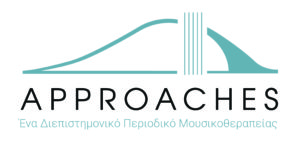
ISSN 1791-9622
Period: 2009 – August 2015
Journal Sponsorship
Approaches is kindly supported by a number of sponsors. Their support enables us to continue our work as an open access journal and fulfil our vision for free knowledge building and sharing.
The diverse profile of our sponsors reflects our values and work as an international and inter-disciplinary journal of music therapy. To find out more about our sponsors, click on the logos below.
Support our work
Click here to find out how you can become a sponsor of Approaches.
Past sponsors of Approaches
Music as Therapy International, UK
Sonora: Multidisciplinary Organisation for Music Therapy & Research, Greece
Open Access Policy
Approaches is an open access journal. All content is freely available without charge to users or their institutions. Users are allowed to read, download, copy, distribute, print, search, or link to the full texts of the articles in this journal without asking prior permission from the publisher or the author. This is in accordance with the Budapest Open Access Initiative (ΒOAI) definition of open access.
Approaches is indexed in the Directory of Open Access Journals. DOAJ is an online directory that indexes and provides access to quality open access, peer-reviewed journals.
The copyrights of all manuscripts published in Approaches are licensed under the Creative Commons Attribution-NonCommercial-NoDerivatives 4.0 International License.Privacy and Consent Policy
The data collected from registered and non-registered users of this journal falls within the scope of the standard functioning of peer-reviewed journals. It includes information that makes communication possible for the editorial process; it is used to inform readers about the authorship and editing of content; it enables collecting aggregated data on readership behaviours, as well as tracking geopolitical and social elements of scholarly communication.
This journal’s editorial team uses this data to guide its work in publishing and improving this journal. Data that will assist in developing this journal platform (Open Journal Systems – OJS) may be shared with its developer Public Knowledge Project (PKP) in an anonymised and aggregated form, with appropriate exceptions such as article metrics. The data will not be sold by this journal or PKP nor will it be used for purposes other than those stated here.
Registered users
Users who register with this journal, including authors and peer reviewers where applicable, consent to having the personal information being stored in the University’s journal hosting platform (OJS) and processed by the platform and journal editorial teams.
Authors
Authors who make a submission to this journal consent to the personal information they supply as part of the submission being stored in the University’s journal hosting platform (OJS) and processed by the platform and journal editorial teams. Authors who make a submission have the responsibility to ensure that all contributors have read this Privacy and Consent policy and consent to having their personal information that is supplied as part of the submission process being stored in the University’s journal hosting platform (OJS) and processed by the platform and journal editorial teams. Authors published in this journal are also responsible for the human subject data that figures in the research reported in the journal.
Website visitors
The University’s journal hosting platform (OJS) collects anonymised usage log data, including IP addresses, pages visited, date visited, browser information, and geographical data. This information is not used to identify visitors personally and it is not used for any purpose other than what is described here. The platform also uses cookies to manage session history and provide a better user experience – more details can be found on the Cookies information page.
Rights of the Individual
Those involved in editing this journal seek to be compliant with industry standards for data privacy, including the European Union’s General Data Protection Regulation (GDPR) provision for “data subject rights” that include (a) breach notification; (b) right of access; (c) the right to be forgotten; (d) data portability; and (e) privacy by design. The GDPR also allows for the recognition of “the public interest in the availability of the data,” which has a particular saliency for those involved in maintaining, with the greatest integrity possible, the public record of scholarly publishing.
All users whose details are stored in the University’s OJS installation can exercise their rights of the individual, as they are detailed in the GDPR.
If you have a user account and wish to have it deleted, please email Edinburgh University Library at edinburgh.diamond@ed.ac.uk.

